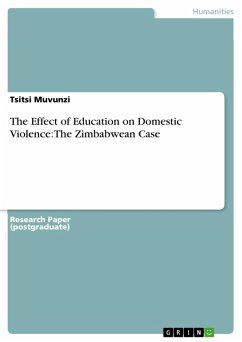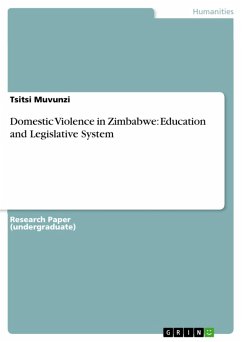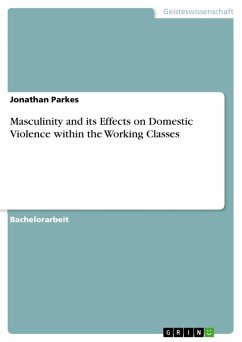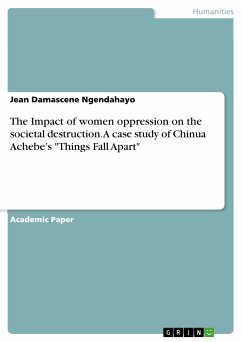Research Paper (postgraduate) from the year 2011 in the subject Sociology - Relationships and Family, grade: A-, Ewha Womans University (Graduate School of International Studies), course: Gender and Development, language: English, abstract: One of the generally agreed techniques likely to facilitate high reductions of incidences of domestic violence among women is to empower them through education. This is because education has been regarded as the most significant instrument for changing women's subjugated position in the society. It not only develops the personality and rationality of individuals, but qualifies them to fulfill certain economic, political and cultural functions and hence improves their socio-economic status. The Zimbabwean case reveals that men and women with more than secondary education are less likely to justify domestic violence. However, the Zimbabwean case is perculia in the sense that domestic violence permeates the whole society regardless of educational levels. Educated men and women perpetrate and experience domestic violence respectively irrespective of their educational levels. It is in this regard that this paper sought to establish why this is so by scrutinizing the education curriculum as well as analyzing whether the legal framework has contributed to reducing domestic violence.
Dieser Download kann aus rechtlichen Gründen nur mit Rechnungsadresse in A, B, BG, CY, CZ, D, DK, EW, E, FIN, F, GR, HR, H, IRL, I, LT, L, LR, M, NL, PL, P, R, S, SLO, SK ausgeliefert werden.









